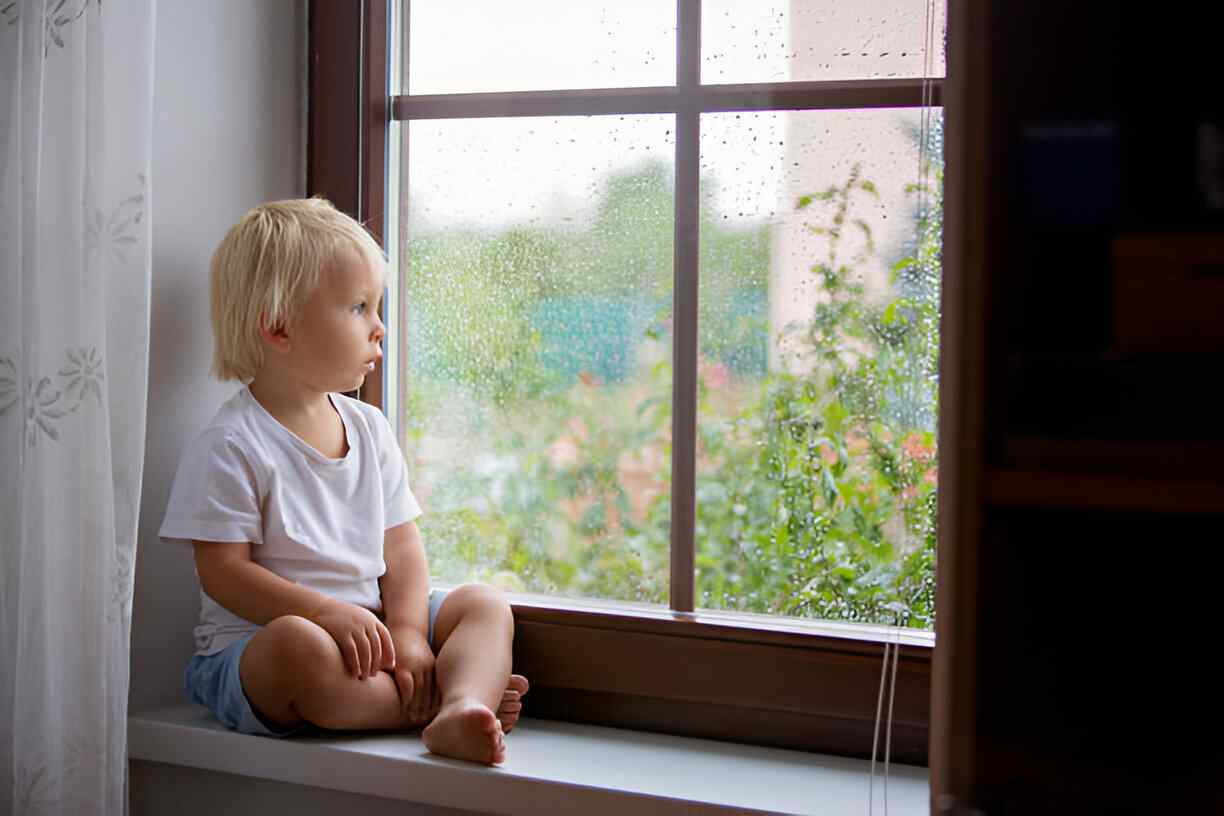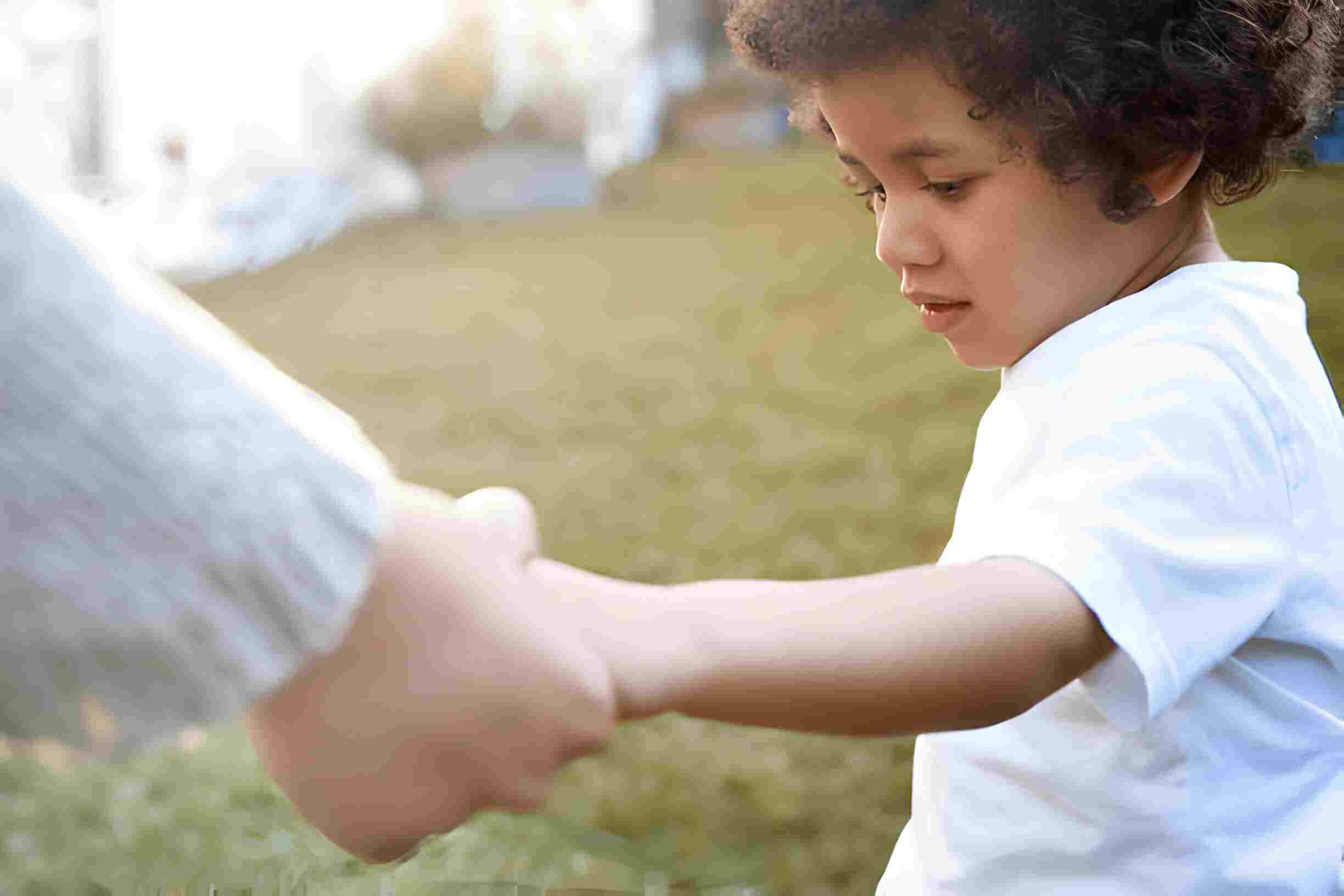My Child Never Wants To Go Out: What Should I Do?
It’s a beautiful, sunny day, and you suggest going to the park, but your child shakes their head and buries themselves even deeper into their favorite activity indoors. No matter how much you try—offering fun outings, playdates, or even a simple walk—they just don’t seem interested in leaving the house. If this sounds familiar, you’re not alone
Many parents worry when their child prefers to stay inside all the time, wondering if it’s a phase or a sign of something deeper; is it social anxiety, a lack of interest in outdoor play, or just a personality trait? In this post, we’ll examine the anxieties a child may avoid going outside.

My Child Never Wants To Go Out?
To solve a problem, you must first identify its underlying cause.
1. An introverted or extremely sensitive personality
Some children are naturally shy or sensitive. They may find outdoor environments too stimulating, loud, or overwhelming. While extroverted kids get their energy from interacting with others, introverted kids need time alone to recharge.
Don’t miss:
- Raising Confident Kids: Simple Steps to Foster Self-Esteem
- Raising Resilient Kids In An Overwhelming World
2. Comfort and Safety at Home
If your child feels safe and comfortable at home, they might be reluctant to leave. They may prefer toys, books, or electronic devices to outdoor activities. This might be the case if they are used to following set indoor routines.
3. Overuse of Screen Time
Too much screen time can make kids less interested in the outside world, whether they are using tablets, playing video games, or watching TV. Instant gratification from digital entertainment makes playing outside seem less alluring.

4. Anxiety or Fear
Some children may experience anxiety about social interactions, new environments, or even specific outdoor experiences. For example, they might be afraid of getting lost, encountering strangers, or trying something unfamiliar. Past negative experiences, such as bullying or an injury, can also create resistance to going out.
5. Lack of Outdoor Interests
The absence of outdoor-related hobbies or interests can make children feel that there is nothing exciting to do outside, in contrast to children who enjoy biking, sports, or nature exploration.
6. Physical Discomfort
Sometimes, physical factors such as extreme weather, sensory sensitivities (to sunlight, loud noises, or rough textures), or even minor health issues (allergies, fatigue, etc.) can discourage a child from wanting to go outside.
7. Social Difficulties
Your child may shy away from situations involving other children if they have trouble forming friendships or interacting with others. Outdoor playgroups or outings can feel stressful rather than fun if participants are shy, afraid of being rejected, or have trouble in social situations.

The Importance of Outdoor Play for Children’s Development
It might be difficult to encourage your child to go outside, but it’s important to keep in mind that outdoor play is vital to their development and overall health. Among the main advantages of outdoor activities for kids are the following:
1. Physical Health Advantages
Children’s physical skills can be developed through outdoor play. Exercises that enhance motor skills, coordination, balance, and strength include running, climbing, jumping, and participating in sports. Children are also given the chance to be physically active, which is crucial for keeping their cardiovascular systems and weight in check.
2. Mental and Emotional Well-being
Spending time outdoors can help improve a child’s mood, reduce stress, and foster emotional well-being. Engaging in outdoor activities can be a healthy way to release pent-up emotions or anxiety, and nature has a calming effect on the mind. Frequent exposure to outdoor areas and nature has also been associated with decreased symptoms of depression and anxiety as well as enhanced focus.
3. Cognitive Development
Outdoor play can help improve cognitive abilities. Children develop problem-solving skills as they interact with their environment, whether it’s figuring out how to climb a tree, navigate a playground structure, or work together with others in outdoor games. Children can engage in imaginative play in the natural world, which fosters critical thinking and creativity.
4. Social Skills Development
Regular outdoor play provides children with opportunities to interact with one another and fosters the development of social skills such as sharing, cooperation, communication, and teamwork. Children gain the ability to compromise, settle disputes, and make friends through group activities. These skills are essential to their long-term social and emotional development.

The Side Effects of Not Going Outside in Kids
Kids need outdoor time for more than just fun. When they don’t spend time outside, it affects their health, social skills, and well-being.
1. Weaker Bodies:
Weaker muscles and bones result from less running, climbing, and jumping. Children who spend too much time indoors may develop strength and coordination issues.

2. Increased Screen Addiction:
In the absence of outdoor activities, screens take over as the primary source of entertainment. This can lead to a lack of sleep, irritability, and even trouble concentrating.
3. Social Struggles:
Playing outside encourages cooperation, sharing, and problem-solving abilities. Kids who don’t go out much might find it harder to make friends.
4. Low Energy & Mood Swings:
Vitamin D and happy hormones are increased by sunlight. Sluggishness and mood swings can result from spending too much time indoors.
5. Less Curiosity:
Imagination and curiosity are sparked by nature. If a child doesn’t explore the outside world, they miss out on experiential learning.
6. Sleep Troubles:
Natural light helps regulate sleep cycles. Kids who spend too much time indoors, especially on screens, often have trouble falling asleep and staying asleep.
How to Encourage Your Child to Go Out
After you have a better understanding of the potential causes of your child’s resistance, you can take action to make them feel more at ease and inspired to go outside.
1. Begin small and establish a routine.
If your child is very resistant to leaving the house, start with baby steps. Taking a quick stroll around the neighborhood, going to a nearby park, or simply getting some fresh air can all be beneficial. Make spending more time outside a daily habit and gradually extend it.
2. Locate Outdoor Recreation
Not all kids have the same tastes in outdoor activities. While some people prefer biking, nature walks, or petting zoos, others may be sports enthusiasts. Try out various pursuits to determine what interests your child.
4. Make the experience entertaining and interesting.
Make time spent outside an adventure instead of a chore. Try backyard treasure hunts, scavenger hunts, or picnics. To enhance the experience, allow your child to bring a sketchbook, a camera, or their favorite toy.
- Nature treasure hunts – Hide small objects like toys or leaves and create a scavenger hunt in the backyard. –
- Outdoor crafts – Bring crafts like painting, drawing, or making nature-themed art projects into the outdoor space.
- Building a fort – Gather blankets, sticks, or cardboard and help your child build a fort outside.
- Sports and games – If your child enjoys sports or physical activities, encourage them to play games like soccer, basketball, or tag.
4. Ask your family or friends.
Activities are frequently more enjoyable for kids when they are with others. To make outdoor time more sociable and appealing, plan playdates or excursions with friends, cousins, or dependable family members. Play games in the yard, take family outings, or go on walks in the evening. As a result, spending time outside feels less like a chore and more like quality time.
5. Limit Screen Time
Limit screen time gradually and promote outdoor play as a substitute if digital devices are the primary draw. Provide interesting outdoor activities that offer practical experiences and enjoyable outdoor activities.
5. Take the Lead
Children frequently imitate the actions of their parents. Your child is more likely to perceive outdoor activities as a natural and pleasurable aspect of life if you spend time there, whether it be for gardening, walking, or exercise.
6. Establish a System of Reward
Even a basic system of rewards can work well. If they spend more time outdoors, reward them with extra bedtime stories, a favorite snack, or an enjoyable weekend excursion. Remain focused on rewards rather than penalties.
7. Incorporate Their Interests
If your child has a particular interest, such as animals, science, or nature, use that as an opportunity to make outdoor time more appealing. Take them to a local zoo, botanical garden, or nature reserve. Engage in activities like birdwatching, gardening, or exploring the local wildlife.
8. Be Understanding and Supportive
If your child has genuine anxiety or discomfort about going outside, don’t force them. Instead, gradually build their confidence by:
– Offering reassurance and positive reinforcement.
– Letting them set the pace and choose activities they enjoy.
– Celebrating small victories, like spending just a few minutes outside at first.
9. Encourage a Sense of Adventure
Make outdoor play feel like an exciting mission. Use storytelling to turn the backyard into a pirate’s treasure hunt, a jungle safari, or a space exploration adventure.
Finally, rather than forcing your child to go out, try to understand why they don’t want to. Even minor changes can make outdoor activities more enjoyable for those who are unsure what to do outside, are nervous, or prefer indoor hobbies.
Creating interesting outdoor activities, monitoring your child’s interests, and being patient will allow you to gradually get them outside and experience the joys of outdoor play.
My Child Never Wants to go out: What Should I Do?
Does your child prefer to stay indoors? What are your most effective strategies? Please leave a comment below and share your experiences!


